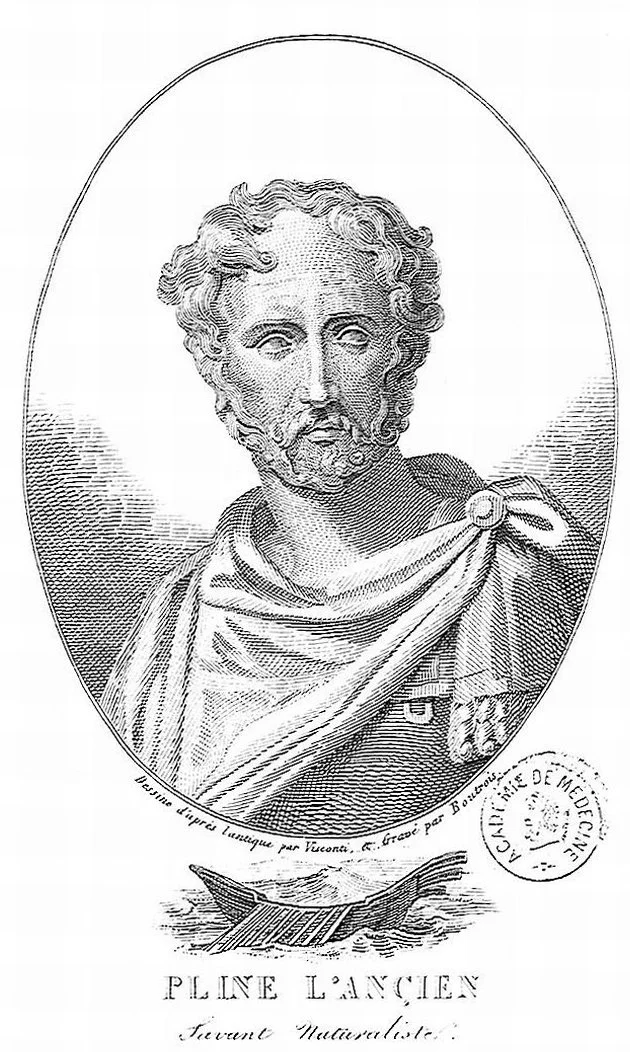ANCIENT ROME
The power of periods
Pliny the Elder (28 - 79 CE) was a Roman scholar, famous for being the author of the world’s first encyclopaedia, Natural History. He believed that menstrual blood was the material from which foetuses were formed, and semen was what prompted the blood to form into the shape of a human and give it life. In it, he writes of the great power of menstruation. In one chapter, he writes that a person who is menstruating will make:
“Seeds which are touched by her become sterile, grafts wither away, garden plants are parched up, and the fruit will fall from the tree beneath which she sits. Her very look, even, will dim the brightness of mirrors, blunt the edge of steel, and take away the polish from ivory. A swarm of bees, if looked upon by her, will die immediately; brass and iron will instantly become rusty”
His belief was that menstrual blood was a poison that caused living things to die. But on the other hand, it was a great force in calming tempestuous weather and showing your menstruating vulva could scare away lightning and hailstorms. Pliny clearly believed that menstruation was an exceptionally powerful force. It could also clear fields of pests, the blood could give relief to sores, tumours and boils, cure malaria and rabies, revive someone after an epileptic seizure and neutralise evil spells.
(Image caption:) Engraving of Pliny the Elder, courtesy of the Prints and
Photographs Division, Library of Congress
